vegetable soils Steve Solomon style or not?
In our rainy climate what are your views about organic matter? Compost? Organic fertilizer? Manure quantity & types? What works for you? Raised beds (wood or no wood)? Mulch or no mulch? Do you use a complete organic fertilizer (COF) and skip the manure or use both?
I’ve read Steve Solomon’s books and it still puzzles me what he recommends as it’s so different from others, so I want to know what works for your vegetable gardening and your specific location.
I’m still trying to figure all this out to grow nutritious vegetables for my family in east Auburn near Black Diamond at around 500’ elevation without using chemicals. I read books & try new methods, but still don’t think I have it “right”.
My dad has always had great gardens in different yards with huge vegetables and though he now has reduced his garden space. In the past he used manure regularly not necessarily composted. He didn't mulch, but now he does for blueberries, raspberries, and grapes. With his open garden he tilled with a small John Deer tractor as well as cultivated regularly with tractor when could, but also with a hoe. In spring after tilling, he’d spray roundup and then wait a few weeks before planting and if bugs because a problem he sprayed with pesticides. Now his vegs are in large containers and no more tilling or hoeing.
In my location compared to my dad's only 15 minutes closer to the Puget Sound -- we have
-more rain (probably about 10' or more)
-cooler temps (both winter and summer)
-of course with tall fir trees less sunshine. I know sunshine is what plants eat, but I still think it should be possible to grow good vegetables except for the summer tropicals (tomatoes, peppers, & cukes).
Our current methods:
Open garden beds for tomatoes (peppers, & potatoes), rhubarb, strawberries, onions, pole beans, spring peas, raspberries, cucumbers, & zucchini. We hand turn organic matter into the soil, but no tiller.
Herbs are in their own in ground bed as well as containers and in squares of concrete blocks.
Wooded sided square foot gardens for other vegetables, green onions from sets, and occasionally rotating in bush beans, peas, tomatoes (peppers or potatoes) planted potager style with parsley, chives, and flowers (calendula, pansies, dwarf dahlias, etc.) as edging.
We began adding horse manure (no weed free hay, horses fed oats, beet pulp, alfalfa hay and have urine absorbed pelleted sawdust bedding) a few years ago in addition to poultry and rabbit manures with bedding as that's how it works out in my kids' set-up. Our compost piles always include wood shavings and often alfalfa hay, grass clippings, and food wastes, which aren't what Steve Solomon recommends for medium or high quality compost.
In 2009 we began using granulated organic fertilizer in the SFG beds and in tomato holes when planting along with our compost of manure, bedding, etc.
We mulch using poultry manure with bedding in the off season as well as straw and shredded leaves near strawberries, rhubarb, fruit trees, & lettuces. More heavily after soil warmed in summer and again after it's cold in fall again. I will pull back or remove in spring to help soil heat up & remove slug hiding places.
I have notes from reading Steve Solomon's books, but didn't want to overwhelm this post with that. I want to hear from you what works in your vegetable gardening.
Here is a link that might be useful: Steve Solomon's books
Comments (23)
tcstoehr
13 years agolast modified: 9 years agoI sometimes wondered why Solomon uses both a COF mixture *and* composts. I would have thought that composting would have been enough. Upon rereading it occurs to me that composting would be enough, but Solomon's large, spread-out gardens make the required amount of compost impractical for most folks. He uses just enough to keep the organic matter level at roughly 5%. Additionally, composts made from local materials will be deficient in the same way that the local soils are. The COF balances that out.
Related Professionals
New Mexico Landscape Architects & Landscape Designers · Summit Landscape Architects & Landscape Designers · Bainbridge Island Landscape Contractors · Canyon Lake Landscape Contractors · Commack Landscape Contractors · Middletown Landscape Contractors · Oxnard Landscape Contractors · West Covina Landscape Contractors · Bensenville Landscape Contractors · Berkeley Fence Contractors · Eagle Mountain Fence Contractors · Gresham Fence Contractors · Minneapolis Fence Contractors · Newington Fence Contractors · Orlando Fence Contractorstcstoehr
13 years agolast modified: 9 years agoOne frightening part of Solomon's books is his dealings with the dreaded Symphylan. I hid under my bed for a week after reading that stuff. I do have Symphs in my garden and I see them from time to time. But I have not needed to relocate my garden... yet. I suppose it's possible that they will reach the "plague" proportions that he talks about. I do occasionally put out some potato slice bait and have yet to attract any that way. I do find them sometimes on mature root veg's that I pull up. They also seem to like potting soil in transplants, or maybe it's the young, tender transplant's roots. I think I have lost some veg starts this way. I remember he wrote about a large sewing of beets in which the germination rate was low and those that did germinate just sat there without growing and slowly just disappeared. It happened to me exactly that way and so it does make me wonder.
The point is that Solomon is giving you his own take on the world which is very valuable, but it is only his viewpoint. His whole dismissal of mulching is another example which I personally find only half true. I believe it was completely true... for him... in his gardens.
Still, I doubt there is a better book for organic vegetable gardening in the PNW than his. Not even close.reg_pnw7
13 years agolast modified: 9 years agoSolomon's book is quite dramatic isn't it? especially the part about limiting soil organic matter to avoid symphyllans. I have gardened here for 12 years now, in south Puget Sound glacial till, and not only have I yet to see a symphyllan but I have yet to see a soil that would not benefit from more SOM. The glacial till soil in my garden has essentially zero SOM. I add whatever I can. Compost, manure, COF, alfalfa pellets, coffee grounds. Then I mulch with leaves or tree chips.
Composting alone in my soil would most definitely NOT be enough for a veggie garden. Composting adds mainly organic matter, with small amounts of nutrients. COF adds nutrients, but not the big chunks of organic matter. The soil needs both.
Raised beds are good for all the reasons gardengal mentions. In our cool springs, you should probably hold off on mulching until the soil has warmed up some. Wet soils are cold soils so it takes a while for things to warm up.
Composted chicken and horse bedding are excellent sources of organic matter and slow release nitrogen. Rabbit manure can be used fresh. It's possible to add too much organic matter to native soil but hard to do so - I think the figure to shoot for is 5% for general gardening, but that's by weight not volume and compost doesn't weigh much compared to mineral soil. The equivalent by volume would be about 10%. That's a lot of compost, but nowhere near the 30-50% I see often recommended. I have had plant growth issues in raised beds that were filled with a soil too high in organic matter, with insufficient mineral soil.
From what you say you do I would not say you're doing too much or anything wrong. You can find out exactly what kind of soil you have from an NRCS soil survey - run the Web Soil Survey and plug in your address and it will tell you what kind of soil you have, with particle sizes and general organic content and drainage characteristics.
Here is a link that might be useful: NRCS Web Soil Survey
tcstoehr
13 years agolast modified: 9 years agoReg, consider yourself lucky that you don't have any Symphs. They are a serious agricultural pest that defies our understanding. Why does organic material in the soil sometimes increase their damage, other times decrease? Why does one part of a field get devastated while another part is untouched? Why this year and not last year? Nobody can answer. This leads to contradictory anecdotal reporting from farmers. One farmer says one thing and the next farmer says the opposite.
The only control that consistently works is soil tilling to physically beat them up, and soil compaction to squish them and limit their mobility thru the soil.
Some farm fields have most certainly been devastated by Symphs, and maybe Solomon was one of those unfortunates.Embothrium
13 years agolast modified: 9 years agoWhatever the particular topic, contradictory anecdotal reporting - which has in the past tended to abound on Garden Web - is due to the critical factors involved not being identified or understood.
There are limits to how much material should be applied to a plot. Results of applications of organic or mineral material do not in reality conform to the popular The More the Better mantra. Even humus-forming materials become limiting rather than productive after a certain comparatively low point.
We do not build soil, the soil is already there and we tinker with it a bit to get our carrots and tomatoes to grow better.
oliveoyl3
Original Author13 years agolast modified: 9 years agoThank you for all of your inputs. I value experience using organic methods. Books don't tell the whole story.
If symphyllans are a big problem here don't you think someone else would be writing and warning us. Perhaps, our limited shoveling and turning of soil is enough to keep them at bay.
For now, I'll keep at building organic matter and using COF as a supplement prior to planting or sidedressing if growth warrants use.
Fortunately on Friday late afternoon, my teen son & his friend loaded & spread another trailer load of horse manure from my easy source (center of their circular driveway & kept covered). They worked quickly, yet we finished after dark under the dim glow of LED Christmas lights. As driver & supervisor, I wasn't sore at all that evening. I actually tossed a few shovelfuls to be strategic around rhubarb crowns. If I could get out of the work of gardening I probably wouldn't be gardening anymore, right?
Hauling so much organic matter is a bother, but seems to make a difference in growth, easy digging of planting holes, and less need for watering in summer. Hauling hoses or watering cans is work, too!
tcstoehr
13 years agolast modified: 9 years ago> "If symphyllans are a big problem here don't you think someone else would be writing and warning us."
You have said a mouthful, I have considered the same thing and I think SS is either overstating the case or simply had some relatively unique horrible experiences.
Thinking out loud:
Symphs are without question a significant agricultural pest, but I never heard of them until I read SS's book. But I'm not farmer either.
I have had squash transplants that failed to thrive due to classic Symphylan symptoms and indeed I did find Symphs among the roots. Yet I cannot tell you for sure that the Symphs were the cause or not.
Last year I lost an entire beet sewing due to, by all appearances, Symphalans. But I cannot prove it.
If I had not read SS's book, I would not even know what a Symphylan was. And upon seeing some I would have paid them little attention.
No gardening acquaintance that I've talked to has the slightest idea what a Symphylan is.
Symphylan symptoms are basically runted plants, or seeds that don't germinate or do germinate but don't grow. How often could this happen without a person knowing the cause?
Symphs tend to bother some species and not others. How many times have people thought "I just can't grow beets" and switch to carrots instead?
How many of us have Symphs and don't know it? Maybe our gardens are productive but would be much more so in the absence of Symphs.plantslayer
13 years agolast modified: 9 years agoI think that Solomon does make it a little more complicated than it needs to be, but then again, he was gardening in the NW as a professional farmer, so he needed to be sure he kept the vegetable fields in good shape.
I think it is important to understand that compost is not enough around here, it really does not have a lot of nutrients although it improves soil tilth a great deal. I think that the main things you need to do around here are make sure you protect the soil in the winter when it is raining constantly- plant a cover crop in October or cover the ground with plastic mulch, burlap or whatever. To really know what the soil needs you have to have it analyzed, but according to my limited knowledge, protecting the soil in the winter and giving it a good dose of organic fertilizer (powder or granules, high in P and K, or supplement with something that has high P and K) plus dolomitic lime in the spring a few weeks before planting is probably going to meet most of your needs as a household gardener. If you don't plant a cover crop you'll probably want to add a decent layer of compost or manure, but otherwise I think just adding some every now and then is fine, unless the soil is obviously not very absorbent.
Embothrium
13 years agolast modified: 9 years agoDon't apply high doses of P or K or anything without specific information like a soil test report indicating a need for it. Over-application of P in particular is problematic because it does not leach much. Soil that has been poisoned by it basically has to be dug out and taken away, if gardening it to continue in the same spot.
The Bottom Line
• Ideal soils, from a fertility standpoint, are generally defined as containing no more than 5% OM
by weight or 10% by volume
• Before you add organic amendments to your garden, have your soil tested to determine its OM
content and nutrient levels
• Be conservative with organic amendments; add only what is necessary to correct deficiencies and
maintain OM at ideal levels
• Do not incorporate organic amendments into landscapes destined for permanent installations;
topdress with mulch instead
• Abnormally high levels of nutrients can have negative effects on plant and soil health
• Any nutrients not immediately utilized by microbes or plants contribute to non-point source
pollutionSee Organic Matter - Part 3 - Nutrient Overland:
Here is a link that might be useful: Horticultural Myths
gardengal48 (PNW Z8/9)
13 years agolast modified: 9 years agoI think it is important to understand that compost is not enough around here, it really does not have a lot of nutrients
I would disagree with this statement :-) Compost, depending on raw ingredients, can provide a well-balanced dose of a wide range of plant nutrients, both primary as well as trace elements, in many cases comparing rather favorably to that of many blended granulated organic ferts. NPK can vary from 1.5-.5-1 to 3.5-1-2. When applied as a mulch to a vegetable garden, there is minimal risk of excessive organic matter accumulating. OM does not last very long, which is why repeated applications are generally considered advisable.
It is also important to remember that vegetable or edible gardening is significantly different in methodology from that of purely ornamental gardening and exceptional tilth and fertility is highly desirable. As to the probablilty of too much OM impacting an edible garden, it is very difficult to reconcile with the success of such methods as SFG or lasagne gardening, which is essentially planting in 100% organic matter. It works and works well, despite what the "authorities" may lead you to believe :-)
Whether or not one needs to add additional organic fertilizers will depend heavily on the content/ingredients of the compost being utilized, any manures that may be applied and a visual assessment of plant growth/fruit production.
Here is a link that might be useful: WSU extension bulletin - Organic Gardening
tcstoehr
13 years agolast modified: 9 years agoI think high quality composts would be sufficient, by definition. But how do you get high quality composts from plants that grew on leached, depleted soils? Your local composts will mirror the same deficiencies that exist in your local soils.
plantslayer
13 years agolast modified: 9 years agoRight, and if you buy bagged compost from the local store, it's probably decent stuff, but in most cases I don't think it's going to give all the nutrients you need without requiring more fertilizer or amendments. I guess you can give your soil the nutrients it needs if you give it exactly the right kind of composted organic matter, but unless you have easy access to lots of different kinds of stuff it is probably easier and more feasible to use organic ferts as well, in my opinion.
anuparaj
13 years agolast modified: 9 years agoI agree with Gardengal48 that high OM is optimal for Veggie gardening. My raised beds are comprised of 50-50 of good potting soil mixed with Gardeder & Bloom harvest blend (which is a good mix of orgainc leaf matter & manures). I also mix in a good dose of orgainc fertilizer (Dr. earth) at the beginning of the year. Never had any issues. I pratice crop rotation religiously.
I've built all my beds using lasagna method and again no major issues. I've gone some years without fertilizing and still had good results.
I truly beleive in the power of organic material for veggie gardening.gardengal48 (PNW Z8/9)
13 years agolast modified: 9 years agoI'm not at all sure one can make any correlation between the value of compost and plants that grew on "leached, depleted soils". First, there is the BIG assumption that the soils are leached or depleted, which may or may not be true. Second, there is the additional assumption that any compost is necessarily restricted to plant material derived from these "leached and depleted soils". And finally there is the assumption that plants growing on such soils will somehow be nutrient deficient, which simply doesn't follow. If the soils were so deficient and nutrient lacking, most plants would have a difficult time growing at all, not to mention that the nutrients contained in the plant material used in the compost are independent from those existing in the soil. The difference is in the input from the microorganisms necessary to break down or decompose the plant material as well as the impact of photosynthesis and how it evolves into a separate set of chemical elements - i.e. the nutrients.
This assumption discounts any outside inputs into the compost - manures, collected leaves or other collected OM, kitchen waste, etc., any benefits from nitrogen fixing green manures/cover crops, not to mention that the compost may very well be be imported or purchased like the Gardner&Bloome compost mentioned above or any other commercially prepared compost like Cedar Grove, Bailey's, et al.
A lot of assumptions going on with this theory, which really doesn't hold much water. Compost is what it is and there is far more risk in generating a "deficient" compost by lack of proper processing than there is in worrying about the so-called quality of the raw materials going into it.
tcstoehr
13 years agolast modified: 9 years agoWithout a doubt, rain leaches and depletes soils. Rain forests have poor soils, dry regions much better due to exactly this. That doesn't mean that any nutrient is 100% gone, but that it is way out of a healthy balance. Without mineral additives, vegetables will not grow well here.
In fact, during the times not so long ago when people ate only foods that came from local sources, you could predict the health of a local population by the amount of rainfall it got. This was in fact done during WWII when an unprecedented amount of physical exams and health data was collected. More rainfall -> poorer soils -> less healthy plants and animals. This was born out by this data.
The Pacific Northwest soils are largely depleted of calcium and magnesium and a few others due to heavy winter rains. Those soils grow fine weeds and fir trees, but lousy grains and vegetables. Livestock raised on plants from these soils will necessarily be less healthy. In pre-WWII days, if you wanted to feed your livestock hay you should get it from the eastern half of the state where it hardly rains at all. But nowadays limes and other fertilizers are widely available and used.
But what I don't know is the content of various tree leaves. Tree roots go deep into the soil and may retrieve lots of minerals. I have a book on hold at the library on just this topic. So maybe using composts with lots of tree leaves would do the trick, I don't know.George Three LLC
13 years agolast modified: 9 years agoa quick google search regarding those studies on soil fertility and animal/human health actually took me to steve solomon's site. i am caught in a logical loop here.
tcstoehr
13 years agolast modified: 9 years agoEeldip, if you are speaking of my last post, you are correct. The things I'm posting in this thread are largely taken from solomon's writings, since that is actually what the thread was about. A good overview can be found at the link below where he talks about NW soils, composts, mineral balance, rainfall and animal health.
gardengal48 (PNW Z8/9)
13 years agolast modified: 9 years agoI still think the issue as it pertains to leached or depleted soils is a non-issue, particularly when it comes to adding compost. Few suburban soils here are fully leached or depleted unless the developer has come in and scraped off all the topsoil, which is rather common. However, although low in fertility, the subsoil still has a decent mineral content. Not many soils have no vegetation whatsoever, which is an indication of at least some basic nutrient level plus any vegetation shields the soil to some degree from rain. Eroded soils are a different story but one does not often encounter that at a suburban residence/landscape.
And since the OP has already indicated that she has amended the soils for a few years at least with a variety of OM, as well as applying COF's, one can hardly consider her soils leached or depleted of nutrients. And my comments about the assumptions made on the nutrient value of any compost, should it even be generated solely from plants grown on these soils, still stand. Witness those landscapes with large, open expanses of lawns that may or may not ever be fertilized - the soil is often compacted and may be low in fertility but the clippings of that lawn still carry a normal nutrient load. ANY organic matter, composted or not, with whatever varying concentrations of nutrients it might contain will benefit the soil and the organisms that live in it.
tcstoehr
13 years agolast modified: 9 years agoGardengal, I get what you're saying and mostly agree. Even heavily leached soils will have enough nutrients remaining to grow trees, grasses, flowers, ferns and such. And plenty of animals will subsist upon those plants.
However, we're talking about growing vegetables which are more demanding of the soil than any other plants, especially the wild ones. Further, we're trying to raise vegetables that are maximally nutritious to us. And that's simply not going to happen with soils that are minerally out of balance.pattyperfect
9 years agolast modified: 9 years agoI have been an organic gardener in Western Oregon for 45 years. Over the years I have added many kinds of manure and have mulched heavily with leaves, straw, and spoiled hay. My gardens have been good, but not wonderful. Two seasons ago I read Solomon's "Gardening When It Counts." I love that book and learned so much. I made COF and applied it as well as ag lime. It made a big difference.
Did the same thing again the next year, and saw an even greater improvement.
I also experimented with growing the corn farther apart and not mulching it. It was wonderful, huge, delicious ears with not a single worm. Now I am not sure what to do about mulching. I think I will still do it as long as I have good material to mulch with.
I recently read Solomon's "The Intelligent Gardener." I found it very technical, and I admit, I did skip many pages. I felt that it did not made sense for me to try to learn all that stuff about how to use the soil tests until after the tests were completed.
But I do plan to do the soil testing this winter and try to determine what my soil needs for optimum re-mineralization. When I get the test results, I will go back to the book and try to figure out how to make up my organic fertilizer.
I have tried to make compost many times, and have never really been successful. I hate to admit that on a gardening page. One woman said I should be the compost queen, since I am a long time experienced organic gardener. But I am not.
So until learning about COF, my soil amendments mostly consisted of manures and mulch, which is tilled into the soil each year. It improved the soil a great deal, but now I am looking forward to having soil that has balanced minerals so my veggies will be big, delicious, and nutrient dense.
Embothrium
9 years agolast modified: 9 years agoSoils vary in mineral content even before people start using them for plantings, adding minerals to them. The soil survey map of my county looks like a patchwork quilt, the idea that everyone in a region has the same conditions is completely false. Somebody on a river floodplain is not going to have the same soil as somebody on a pile of glacial till.
tcstoehr
9 years agolast modified: 9 years agoYes, get a soil test done. I recommend A&L labls for PNW:
I finally got off my butt and had a soil test done. Found out I was very high in phosphorous and would still be adding it if it wasn't for the test. I was very low in calcium even though I had been adding lime. Potassium was of course very high just like everyone else in PNW.
The test comes with a visual readout and recommendations for amendments.Here is a link that might be useful: A & L labs

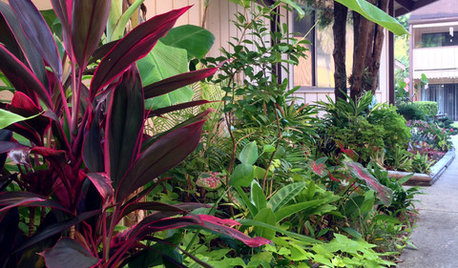
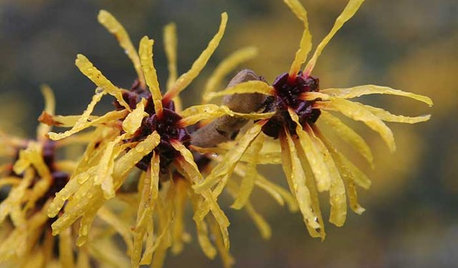

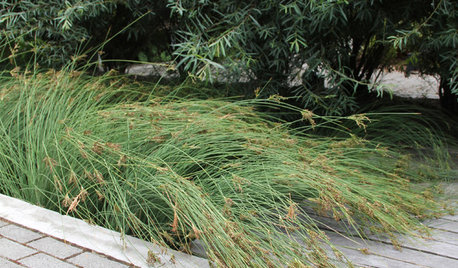
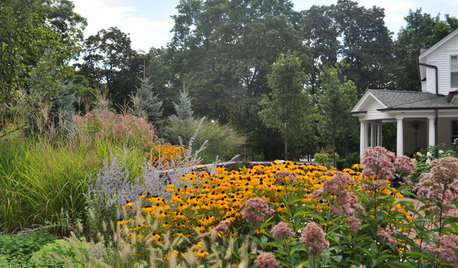







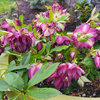
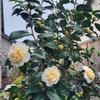
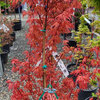
gardengal48 (PNW Z8/9)